
The Revelation is Sent to The Church in Pergamum

(*All Bible references are from the NIV unless otherwise noted)
Chapter 2:12-17
Rev 2:12 “To the angel of the church in Pergamum write: These are the words of him who has the sharp, double-edged sword.
Rev 2:13 I know where you live—where Satan has his throne. Yet you remain true to my name. You did not renounce your faith in me, not even in the days of Antipas, my faithful witness, who was put to death in your city—where Satan lives.
Rev 2:14 Nevertheless, I have a few things against you: There are some among you who hold to the teaching of Balaam, who taught Balak to entice the Israelites to sin so that they ate food sacrificed to idols and committed sexual immorality.
Rev 2:15 Likewise, you also have those who hold to the teaching of the Nicolaitans.
Rev 2:16 Repent therefore! Otherwise, I will soon come to you and will fight against them with the sword of my mouth.
Rev 2:17 Whoever has ears, let them hear what the Spirit says to the churches. To the one who is victorious, I will give some of the hidden manna. I will also give that person a white stone with a new name written on it, known only to the one who receives it.
Rev 2:12
To the angel of the church in Pergamum:
The ancient city of Pergamum is now the modern Turkish town of Bergama. Located fifteen miles from the Aegean Sea on a great hill that dominates the surrounding plain, it was one of the most important cities in the Hellenistic Greek age1. The Greek writer Plutarch said that a great library containing approximately 200,000 volumes was located there and was one of the most important libraries in the ancient world, second only to the Library of Alexandria (pergamena is Latin for parchment)2.
A century before Jesus was born, Pergamum had a large temple dedicated to the worship of Caesar Augustus. The city was famous for the healing miracles of the god Asculapias, and a large school of pagan priests trained there in the healing arts3.
Rev 2:12
These are the words of him who has the sharp, double-edged sword:
Hebrews 4:12 For the word of God is alive and active. Sharper than any double-edged sword, it penetrates even to dividing soul and spirit, joints and marrow it judges the thoughts and attitudes of the heart.
Ephesians 6:17 Take the helmet of salvation and the sword of the Spirit, which is the word of God.

Rev 2:13
Where Satan has his throne:
It’s important to pause here to consider the pagan mindset that had permeated the ancient world for millennia.
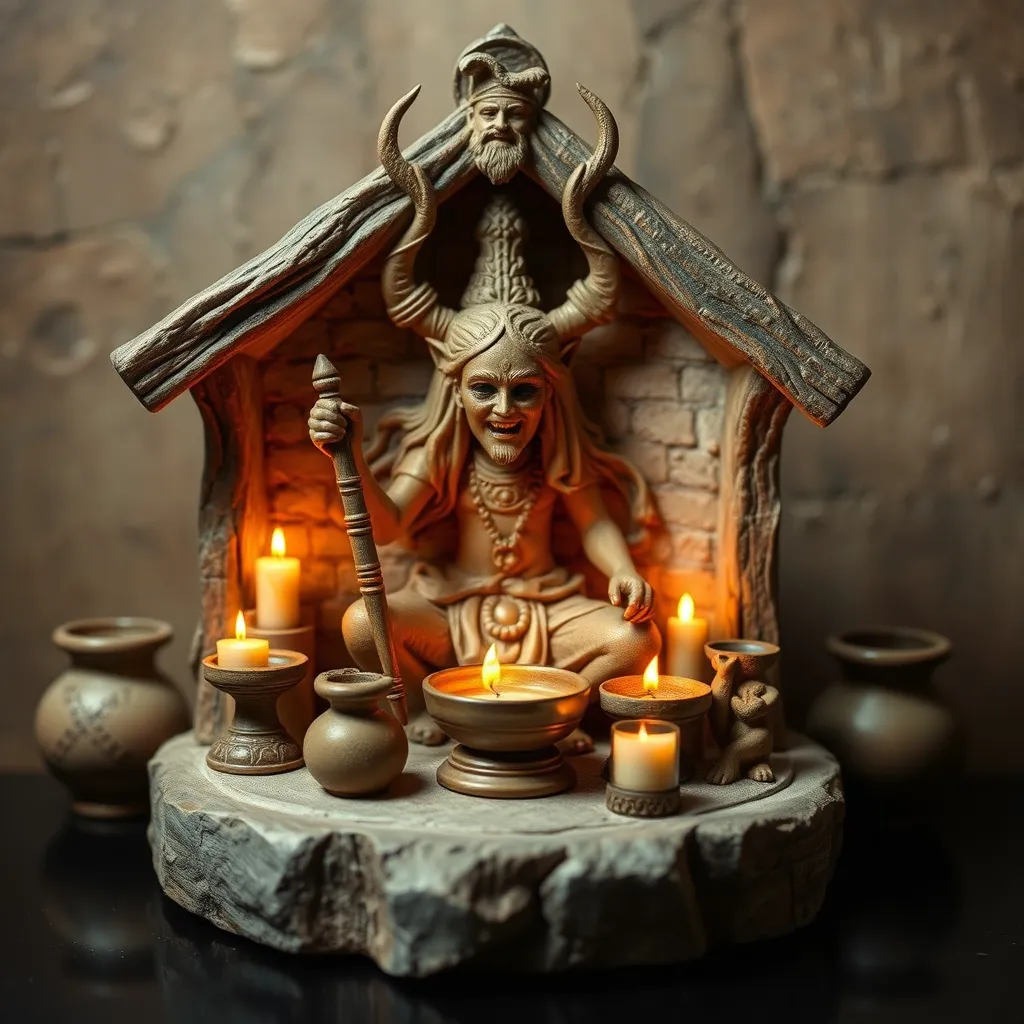
George Hodges writes: Among these [pagan cultures] the ceremonies of religion were family customs, connected with distinguished and revered ancestors. In spite of all the criticisms of sceptics, and the discontent of devout souls, the old religion dominated the Roman world. Christianity found it everywhere in control. Everywhere it pervaded the whole of life. It was a domestic religion, associated with every detail in the conduct of the household.
The door was consecrated to Janus, and the hearth to Vesta. The house was under the protection of the Lares, the contents of it were guarded by the Penates. Ceres presided over the growth of the grain; Flora attended to the blossoms, and Pomona to the fruit in the orchard. There was a divinity for every act of life from birth to death. And neglect of the invocation of the proper god at the proper time was likely to involve serious consequences.
The Roman religion pervaded all the affairs of business. Not only were the transactions of exchange and barter, the occupations of industry, and the administration of law, conducted in the language of religion, under the patronage of the gods, but it touched all manner of employment. With its shrines and temples and images and liturgies, it engaged the services of the mason, the carpenter, the blacksmith, the goldsmith, the weaver, the dyer, the embroiderer, the musician, the sculptor and the painter. The schoolmaster gave instruction in its sacred books. Sowing and reaping depended on it. War waited for it.
Religion entered into every department of civil life. Nobody in the employ of the government could possibly evade it. Every office had its sacred image. Every oath was taken in the name of the gods. Every senator as he entered the Senate-house cast grains of incense into the fire which smoldered before the statue of Victory28.
The city of Pergamum had great temples and altars to the Greek and Roman gods. Locals and pilgrims offered sacrifices to these gods to ensure prosperity and health for their community. The lifestyle of the Christians was a considerable contrast. Following are some observations by ancient writers:
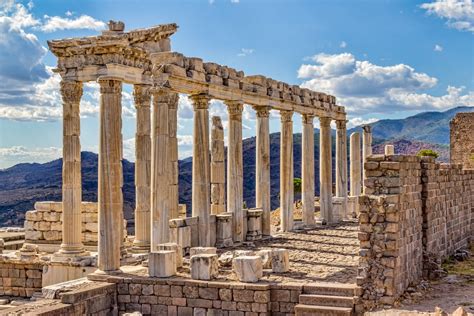
Octavius is an early work by Marcus Minucius Felix that defends Christianity. It is written as a dialogue between the pagan Caecilius Natalis and the Christian Octavius Januarius, and highlights several of the misconceptions pagans had towards Christians:
Minucius Felix, The Octavius, Chapter 9: The religion of the Christians is foolish, inasmuch as they worship a crucified man, and even the instrument itself of his punishment. They are said to worship the head of an ass, and even the nature of their father. They are initiated by the slaughter and the blood of an infant, and in shameless darkness they are all mixed up in an uncertain medley. They know one another by secret marks and insignia, and they love one another almost before they know one another. Everywhere also there is mingled among them a certain religion of lust, and they call one another promiscuously brothers and sisters, that even a not unusual debauchery may by the intervention of that sacred name become incestuous…Now the story about the initiation of young novices is as much to be detested as it is well known. An infant covered over with meal, that it may deceive the unwary, is placed before him who is to be stained with their rites: this infant is slain by the young pupil, who has been urged on as if to harmless blows on the surface of the meal, with dark and secret wounds. Thirstily — O horror! — they lick up its blood; eagerly they divide its limbs.
Several other writings have survived that illustrate the bias early Christians were confronted with. For example:
Athenagoras (c. 133 – c. 190 AD) was a Father of the Church and an Ante-Nicene Christian apologist who lived during the second half of the 2nd century. In his Apology4, 3.1 he observes: Three things are alleged against us: atheism, Thyestean feasts (cannibalism), Oedipean intercourse (sexual perversion).
Tertullian (c. 155 – c. 220 AD) was a prolific early Christian author from Carthage in the Roman province of Africa. In his Apology5, Chapter 9, he writes: …And how unreasonable it is to believe that those, of whom you are convinced that they regard with horror the idea of tasting the blood of oxen, are eager after the blood of men; unless, perhaps, you have tried it, and found it sweeter to the taste! Nay, in fact, there is here a test you should apply to discover Christians, as well as the fire-pan and the censer. They should be proved by their appetite for human blood, as well as by their refusal to offer sacrifice…
Tacitus (c. 56 – c. 120), a Roman historian, recorded in his Histories, 44.4: Therefore, first those were seized who admitted their faith, and then, using the information they provided, a vast multitude were convicted, not so much for the crime of burning the city, but for hatred of the human race.
Suetonius (c. 69 – 122), another Roman historian, noted in his Biography of Nero, 16:2, that punishment was inflicted on the Christians, a class of men given to a new and mischievous superstition.
Misunderstanding and jealousy ran rampant. Something new and mysterious was happening in villages and cities throughout the Empire that seemed to run contrary to ancient tradition and sacred belief. The followers of Jesus began to be accused of heinous crimes:
- “They are haters of men!” Christians would not sacrifice to local pagan gods for fruitful harvests and productive businesses.
- “They have secret meetings and orgies!” The saints met frequently in small intimate groups for love feasts (communal meals) and for worship, often in secret to avoid persecution.
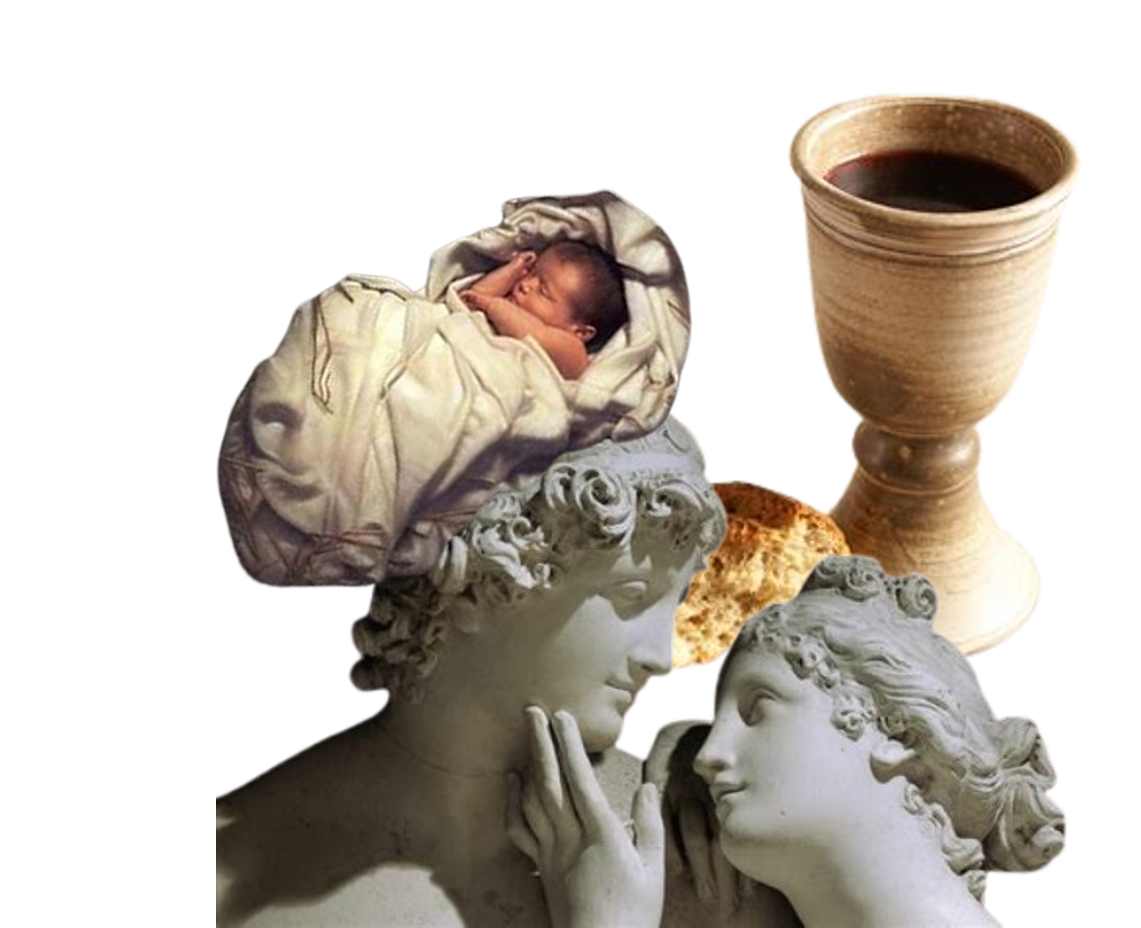
- “They must be cannibals, sacrificing babies and drinking their blood!” Believers ate and drank symbols of the body of their God. Add to that the worship of a baby and the talk about eating Christ’s flesh and drinking his blood!
- Incest was added to the list! They referred to each other as brother and sister.
- “Christians are traitors to the Roman State!” The saints refused to worship the emperor as a god and often would not serve in the military6.
As discussed earlier, Rome was generally tolerant of local gods and customs as long as they didn’t disturb the peace and order of the Empire. Some have asked why Judaism was tolerated while Christianity was not. In the diverse religious environment of the Roman world, early Christianity presented a different dilemma, as noted above.
In the pagan world of Rome, all deities were deemed worthy of respect. To deny a village deity by refusing to sacrifice was to deny the god’s existence. A pagan traveler of the time wouldn’t necessarily feel obligated to embrace a local god personally, but, in principle, all gods were worthy of respect.
Why didn’t Rome persecute the Jews the same way they did the Christians? Christians and Jews both believed in the existence of only one true and living God and regarded the worship of any other deity as prohibited. However, the Jews were a more introverted community and didn’t actively pursue converting others to their beliefs. Their God was seen as unique to their history and culture and demanded nothing from outside nations. On the other hand, Christians enthusiastically testified of their God and boldly declared Him as the only God, categorically denying all others and encouraging family and friends to do likewise!
Early Christianity was so different in that respect, that many Roman-era people were repulsed by Christian beliefs and practices, accusing them of disrespect and atheism! Outright refusal to worship deities was deemed bizarre, even antisocial, and, worse still, impious and irreligious.
Rev 2:13
You remain true to my name. You did not renounce your faith in me:
Loyalty to the Emperor was synonymous with loyalty to Rome. The Empire didn’t insist everyone worship the old gods, but it did demand allegiance to the state. From time to time every citizen was asked to make a sacrifice to the image of the emperor as if he were divine – a small display of loyalty to the Empire. Many Christians refused to do this, and it was this refusal that brought the accusation of an enemy of the state.
For the Romans, the arrests and punishments were not an issue of religion but one of politics. Christians were persecuted as disloyal citizens who were considered a hindrance rather than a benefit to society.
Rev 2:13
Not even in the days of Antipas, my faithful witness, who was put to death in your city:

The Greek Orthodox Church believes that Antipas was a contemporary of the Apostles and that the Apostle John ordained him as Bishop of Pergamum. Their tradition holds that Antipas was brought to trial during the reign of Nero or Domitian but refused to renounce Christ. Consequently, he was roasted alive inside a hollow bronze bull heated over an intense fire7.
Rev 2:14
I have a few things against you…The Teaching of Balaam… likewise…the teaching of the Nicolaitans:
Num 22-31 relates the story of Balaam and the immorality of Israel. Mention is also made of him in the New Testament:
Num 25:1 While Israel was staying in Shittim, the men began to indulge in sexual immorality with Moabite women, 2 who invited them to the sacrifices to their gods. The people ate the sacrificial meal and bowed down before these gods. 3 So Israel yoked themselves to the Baal of Peor. And the LORD’s anger burned against them.
Num 31:16 “They were the ones who followed Balaam’s advice and enticed the Israelites to be unfaithful to the LORD in the Peor incident, so that a plague struck the LORD’s people.
2Pet 2:15 They have left the straight way and wandered off to follow the way of Balaam son of Bezer, who loved the wages of wickedness.
Jude 1:11 Woe to them! They have taken the way of Cain; they have rushed for profit into Balaam’s error; they have been destroyed in Korah’s rebellion.
The sin of the Nicolaitans seems to be linked with Balaam’s treachery of enticing others to immorality and paganism. Notice the same accusations brought against the church in Thyatira in verse 20:
20 Nevertheless, I have this against you: You tolerate that woman Jezebel, who calls herself a prophet. By her teaching she misleads my servants into sexual immorality and the eating of food sacrificed to idols.
Rather than being names for specific persons, Nicolaitan and Jezebel may have been general pejoratives for any Christians who continued to cling to some of their past pagan traditions.
Rev 2:14
Food sacrificed to idols:
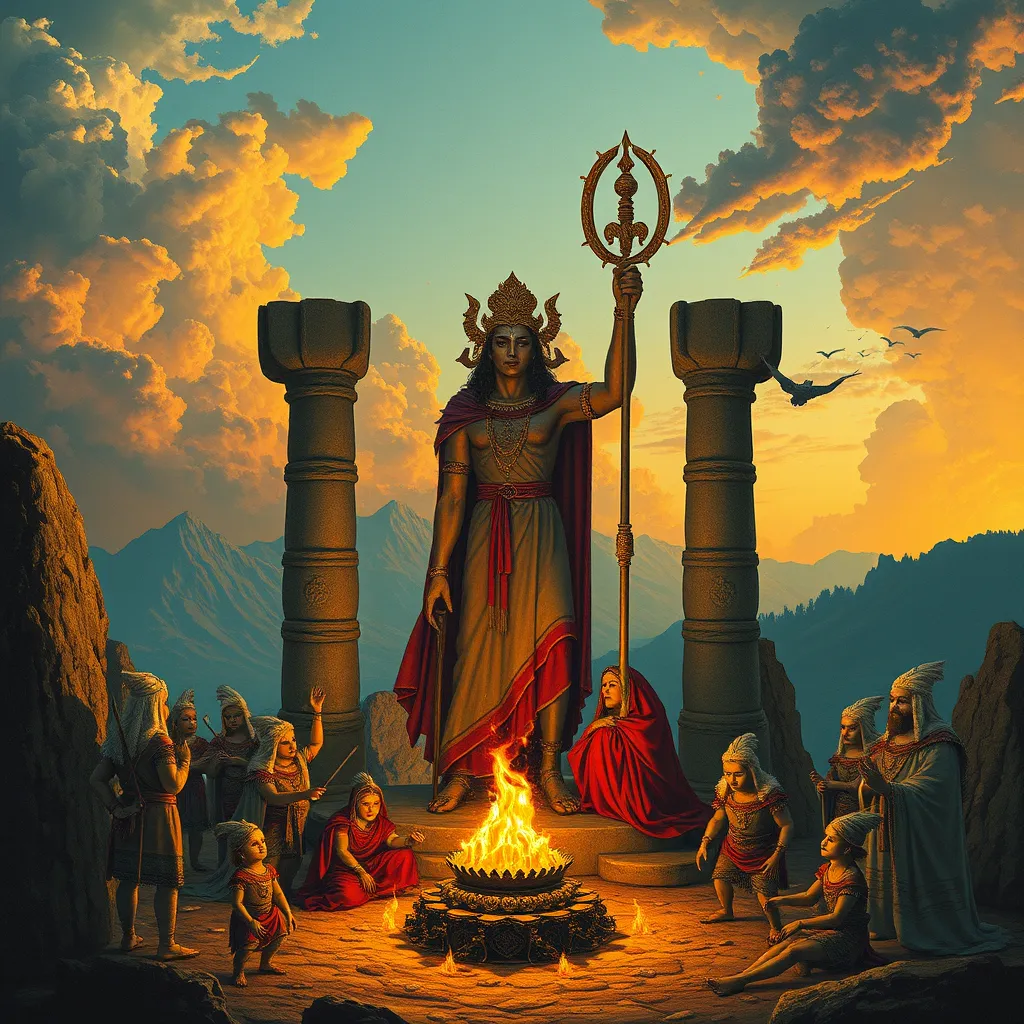
Early Gentile Christians had grown up in a pagan world and were accustomed to participating in the sacrificial meals of various deities and the celebrations that accompanied them—deeply rooted and ancient traditions. These converts to the Church were faced with the dilemma of drawing a line between traditional community celebrations and their new loyalty to the One God and his Christ.
Paul’s letter to the Corinthian saints and the admonitions of the other Apostles (1 Cor 8:1-11, Acts 15:20, 29) suggests that the problem of eating food that had first been dedicated to an idol had become an issue. But refusing to participate in local celebrations and feasts invited ostracism and scorn, particularly when those activities were designed to invoke favor, rich harvests, and health from the local gods.
Christians may face similar criticisms today if they refuse to watch violent or sexually explicit films, decline parties where drinking or drugs are available, or decide not to participate in some traditional Halloween festivities. They may be accused of being prudish, anti-social, or self-righteous. Some communities have even faced legal challenges for putting Nativity scenes and other Christian symbols in community spaces during the Christmas or Easter seasons.
Rev 2:14
And sexual immorality:
Romans didn’t think in terms of sexual orientation (heterosexual or homosexual). Rather, sexuality was tied to ideas of masculinity, male domination – the warrior image – and the adoption of the Greek pursuit of beauty8.
It was socially acceptable (and even expected) for a strong male to be dominant and sexually aggressive. Sex with his slaves (male or female), prostitutes, homosexual encounters, even rape, was generally overlooked as long as it was someone of a lower status9.
Pederasty10 (common in the ancient Greek culture and adopted by the Romans) was seen as a natural and acceptable expression of male privilege and domination.
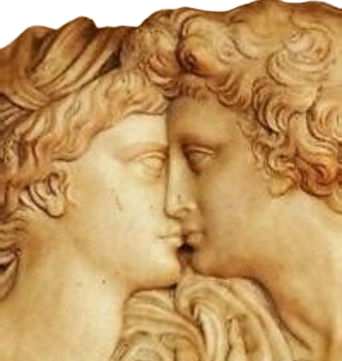
But Christianity turned these ancient customs upside down! New Testament writers extended the concept of sexual immorality to include all sexual activities outside the bonds of marriage. This Christian view was despised and ridiculed by the ancient world, but eventually became codified into law under the reign of Justinian (527-565)11. Sex between males became a crime, pederasty was outlawed, and coerced prostitution was strongly opposed.
Society’s views on what is moral and what is immoral have continued to change over the centuries. Slowly, God’s counsel has been removed from consideration, sex has become detached from the gender distinctions of male and female, and the concept of sexual relations has been disconnected from a covenant love relationship altogether12. Sex, as a created reality by God, has today been reduced and detached from the rich dimensions of God-intended sexuality, that of love, parenthood, and fidelity13.
Rev 2:16
I will … fight against them with the sword of my mouth:
Eph 6:17 … and the sword of the Spirit, which is the word of God,
Heb 4:12 For the word of God is alive and active. Sharper than any double-edged sword, it penetrates even to dividing soul and spirit, joints and marrow it judges the thoughts and attitudes of the heart.
Rev 2:17
To the one who is victorious, I will give some of the hidden manna:
The Hebrew word, manna, literally means, “What is it?”
Exod 16:4 Then the LORD said to Moses, “I will rain down bread from heaven for you. The people are to go out each day and gather enough for that day. In this way I will test them and see whether they will follow my instructions.
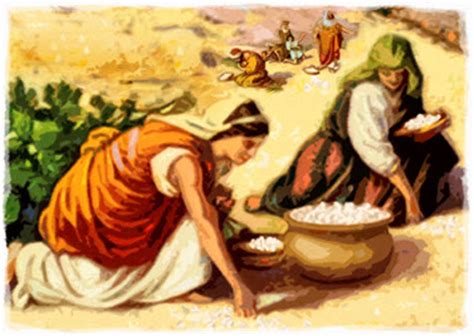
Exod 16:13-15 That evening quail came and covered the camp, and in the morning there was a layer of dew around the camp. 14 When the dew was gone, thin flakes like frost on the ground appeared on the desert floor. 15 When the Israelites saw it, they said to each other, “What is it?” For they did not know what it was. Moses said to them, “It is the bread the LORD has given you to eat.
Christians believe that Jesus, through his teachings, sacrificial death, and miraculous resurrection, is the life-sustaining “bread” that God offers His children:
John 6:32-33, 58 32 Jesus said to them, “Very truly I tell you, it is not Moses who has given you the bread from heaven, but it is my Father who gives you the true bread from heaven. 33 For the bread of God is the bread that comes down from heaven and gives life to the world.” …58 This is the bread that came down from heaven. Your ancestors ate manna and died, but whoever feeds on this bread will live forever.”
This “manna” brings spiritual life, and is “hidden” from all accept those who accept its truth through the Holy Spirit.
Rev 2:17
I will also give him a white stone with a new name written on it :
Several explanations have been suggested for the meaning the white stone. Two of the more interesting legends follow, but the origin of both is somewhat obscure:

- In ancient Greece, jury members would cast a white stone to signify an acquittal, whereas a black stone proclaimed the defendant guilty.
- There may have been an ancient Roman custom of awarding white stones to the victors of athletic games. The winner of a contest was awarded a white stone with his name inscribed on it. This served as his “ticket” to special rewards.
The vision could also refer to the stones that were part of the ancient breastplate prepared for Aaron, which high priests wore during their service before God.
Exod 28:15 “Fashion a breast piece for making decisions—the work of skilled hands. Make it like the ephod: of gold, and of blue, purple and scarlet yarn, and of finely twisted linen.16 It is to be square—a span long and a span wide—and folded double. 17 Then mount four rows of precious stones on it…21 There are to be twelve stones, one for each of the names of the sons of Israel, each engraved like a seal with the name of one of the twelve tribes.
However, following the process established by this study, another possibility for John’s white stone presents itself. A stone, pebble, or rock is solid and firm (Isa 8:14, 28:16). White has been used consistently to symbolize purity and holiness in verses such as Isa 1:18, Dan 7:9, and Matt 17:2.
A person’s name is rich in history. In some modern cultures, names are chosen because they sound nice. Some names become trendy, and each generation can list the most popular names in those years. But every name has a meaning. In ancient cultures, parents chose names for their children based on the qualities they hoped they would embody.
- Michal: “Who is like God?”
- Adriel: “the flock of God”
- Jeremiah: “exaltation of God”
- Isaiah: “The salvation of the Lord”
- Joshua: “Savior, deliverer” (Greek: Jesus)
Modern names also have a history:
- Hayes: “Hedged area” (English)
- Everly: “Wild boar in woodland clearing” (English)
- Harlow: “Rock hill or army hill” (Old English)
- Emery: “Industrious” (From German to English)
- Sage: “wise and knowing” (Latin herb name)
- Henry: Germanic name Heimirich meaning “home ruler”
- Ava: Variant of Eve, Hebrew, “Life” or “Living”
For someone to be given a new name is a special event. To be given that name by God holds tremendous spiritual significance:
Isa 62:1 For Zion’s sake I will not keep silent, for Jerusalem’s sake I will not remain quiet, till her vindication shines out like the dawn, her salvation like a blazing torch. 2 The nations will see your vindication, and all kings your glory; you will be called by a new name that the mouth of the LORD will bestow.3 You will be a crown of splendor in the LORD’s hand, a royal diadem in the hand of your God.
Isa 66:22 “As the new heavens and the new earth that I make will endure before me,” declares the LORD, “so will your name and descendants endure.
Abram, Sarai, and Jacob were given new names by God:

Abram, the Hebrew name meaning “High Father,” was changed to Abraham, meaning “Father of a multitude.” (Gen 17:5) (Strong’s H87 – H85);
Sarai, signifying “dominative, governing, ruling, imperious”, was changed to Sarah, which means “princess”, because she would be the mother of nations (Gen 17:15) (Strong’s H8297 – H8283);
Jacob’s name, “heal catcher”, was changed to Israel, “He will rule as God” (Gen 32:28); (Strong’s H3290 – H3478).
Consider the significance of signing your name on a document or putting your name on an object. Doing so indicates accepting responsibility or ownership. God’s promise found throughout the Bible is that anyone can become a new creature in Christ – all mistakes, bad decisions, and hurtful actions washed away and forgotten! When we come before God with a repentant spirit and longing for His righteousness, He claims us as His own, giving us a new name:
Rev 3:12 The one who is victorious I will make a pillar in the temple of my God. Never again will they leave it. I will write on them the name of my God and the name of the city of my God, the new Jerusalem, which is coming down out of heaven from my God; and I will also write on them my new name.
Rev 19:11 I saw heaven standing open and there before me was a white horse, whose rider is called Faithful and True…
Rev 14:1 Then I looked, and there before me was the Lamb, standing on Mount Zion, and with him 144,000 who had his name and his Father’s name written on their foreheads.
2Cor 5:17 Therefore, if anyone is in Christ, the new creation has come: The old has gone, the new is here!
Eph 4:22 You were taught, with regard to your former way of life, to put off your old self, which is being corrupted by its deceitful desires; 23 to be made new in the attitude of your minds; 24 and to put on the new self, created to be like God in true righteousness and holiness.
Col 3:9 Do not lie to each other, since you have taken off your old self with its practices 10 and have put on the new self, which is being renewed in knowledge in the image of its Creator.
Because of Christ, every faithful believer is given a new name: forgiven, new creation, redeemed, chosen, child of God, faithful and true!
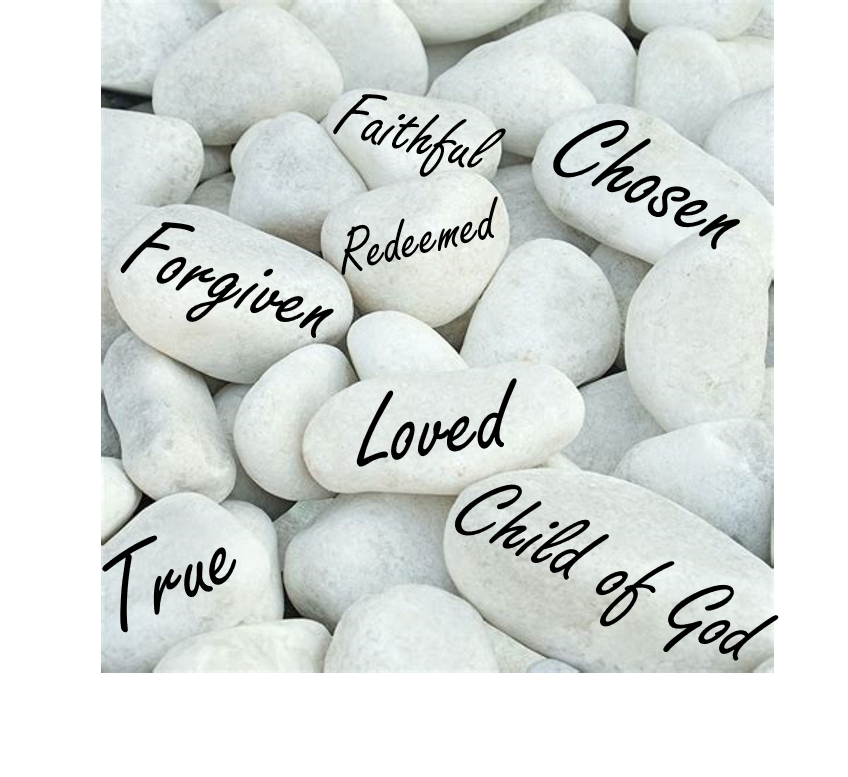
Footnotes
- Pergamum, Encyclopedia of the Bible, https://www.biblegateway.com/resources/encyclopedia-of-the-bible/Pergamum, citing G. Cardinali, Il regno di Pergamo (1906); A. H. M. Jones, The Cities of the Eastern Roman Provinces (1937); M. Rostovtzeff, The Hellenistic World (1941), retrieved February 12, 2022. ↩︎
- All Scripture quotations, unless otherwise indicated, are taken from the Holy Bible, New International Version®, NIV®. Copyright ©1973, 1978, 1984, 2011 by Biblica, Inc.™ Used by permission of Zondervan. All rights reserved worldwide. www.zondervan.comThe “NIV” and “New International Version” are trademarks registered in the United States Patent and Trademark Office by Biblica, Inc.™Veronica Parkes, The Library of Pergamum: A Contender for the Greatest Library of the Ancient World. Ancient Origins, https://www.ancient-origins.net/ancient-places-asia/library-pergamum-contender-greatest-library-ancient-world-007601, updated 24 February 2017 – 01:58. Retrieved November 19, 2021. ↩︎
- Ibid. ↩︎
- Hodges, George, The Early Church: From Ignatius to Augustine, pp. 17-18. ↩︎
- Apologetics: The branch of theology that is concerned with defending or proving the truth of Christian doctrines. ↩︎
- Hurtado, Larry W.. Destroyer of the gods (p. 53). Baylor University Press. Kindle Edition. ↩︎
- Antipas, Bishop of Pergamum and Disciple of Saint John the Theologian”. http://www.oca.org, Accessed June 22, 2021. ↩︎
- Tim Challies, 3 Awful Features of Roman Sexual Morality, https://www.challies.com/articles/3-awful-features-of-roman-sexual-morality, October 17, 2016, retrieved January 10, 2023. ↩︎
- Gill, N.S. Male Sexuality in Ancient Rome, ThoughtCo, Feb. 16, 2021, retrieved Jan 10, 2023. ↩︎
- Pederasty – a sexual relationship between an adult man and a pubescent or adolescent boy. Possibly the references translated as “Homosexual” in some Bible translations. ↩︎
- Kevin DeYoung, The First Sexual Revolution: The Triumph of Christian Morality in the Roman Empire, September 9, 2019, https://www.thegospelcoalition.org, accessed Dec. 10, 2023. ↩︎
- Dave Burggraff, PhD, A History of Sexual Ethics, Shepherds Theological Seminary, March 16, 2021. Retrieved June 16, 2023. ↩︎
- Ibid. ↩︎
*All Scripture quotations, unless otherwise indicated, are taken from the Holy Bible, New International Version®, NIV®. Copyright ©1973, 1978, 1984, 2011 by Biblica, Inc.™ Used by permission of Zondervan. All rights reserved worldwide. www.zondervan.comThe “NIV” and “New International Version” are trademarks registered in the United States Patent and Trademark Office by Biblica, Inc.™





